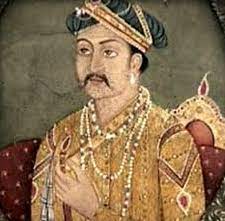Bairam Khan
Bairam Khan was initially called Bairam ‘Beg‘ in the Mughal Empire. Later he was honored as ‘Khan‘. Later Humayun honored him as Khan-i-Khanan meaning ‘King of Kings’.
Bairam Khan was the most important military commander in the Mughal Empire who also became the commander in chief of the Mughal army. He was a powerful political figure and regent at the Mughal’s court during the reign of Humayun and Akbar.
Though Bairam Khan was a violent general who was committed to re-establish the Mughal dominance in India. That’s the reason he was considered the most trusted chief adviser of Akbar.

Quick Facts
- Full Name: Bairam Khan
- Born: 18th January 1501
- Died: 31st January 1561
- Monarch: Akbar
- Years of service: 1517-1561
- Battles/wars: Battle of Ludhiana, Battle of Khanwa, Battle of Ghaghra, Battle of Sambhal, Second Battle of Panipat
- Religion: Islam
- Spouse: Daughter of Jamal Khan (1554–1561), Salima Sultan Begum (1557–1561)
- Father: Seyfali beg
- Famous as: Vakil | Regent of the Mughal Empire
Early life and family
Bairam Khan was born on 18th January 1501 in Badakhshan, Central Asia. He was the member of the Baharlu Turkoman clan of Kara Koyunlu alliance. This alliance had ruled Western Persia for many years after they were thrown out by their opponents.
Father of Bairam Khan, Seyfali beg Baharlu and his grandfather, Janali Beg Baharlu were the members of Babur during his reign. Pirali Beg Baharlu, Bairam Khan’s great-grandfather was the brother of Pasha Begum who was the wife of Babur.
Role in Military Service
Bairam was 16 years old when he joined the service of Babur’s. He was an active member during the early conquests of Mughals in India. He also played important role in establishing the Mughal Empire during the reign of Humayun later.
Bairam Khan had participated in many military campaigns held in Gujarat, Bengal and Benares. Thus he played a leading role in Humayun’s reconquer of Indian Subcontinent. Bairam Khan had escorted Humayun when he was expelled to Persia which helped him in conquering Kandahar.
Akbar had appointed Bairam Khan as the regent during his reign after the death of Humayun in 1556. He was able to merge the Mughal authority in northern India after becoming regent. His most notable contribution was during the Second Battle of Panipat. This war took place in November 1556 between Akbar and Hemu.
Later years
Some of the Sunni Turkic nobles never liked Bairam Khan because he was a Shia Muslim. Though as a Shia Muslim, he also attended Friday services of a noted Sufi in the mosque. Because of him, the Mughals had appointed the son of Sikandar Lodi’s court poet Jamali Kamboh as sadr-as-sudr after the return of Humayun to Delhi in 1555.
Marriages
Sher Shah boosted Babur’s successor Humayun after his death in 1540 A.D. which later supported by Islam Shah in 1545 A.D. During the reign of the Islam Shah, the emperor lost a battle at Firozpur Jhirka in Mewat but he did not lose his hold. Now Adil Shah who had succeeded in A.D. 1552 had to face the returned Humayun for the Empire.
In the struggles for the rebuilding of Babar’s dynasty, Humayun married the elder daughter of Jamal Khan and the nephew of Babar’s opponent, Hasan Khan Mewati. At the same time, his minister, Bairam Khan married younger daughter of Jamal. Bairam had also married Salima Sultan Begum, who married Akbar after his death.
Death of Bairam Khan
Bairam Khan had a difference in opinion Akbar. So once Akbar suggested him to either retire and stay in the palace or go to Hajj pilgrimage in Mecca. So he decided to go on Hajj where his enemies decided to rebel him on his way. They defeated him in Punjab. Bairam Khan decided to continue for pilgrimage. But he was killed once he reached Gujarat. Haji Khan Mewati who was the general of Hemu had planned and killed Bairam to take revenge for his death. However, his wife and son were set free and were released to Agra.
Bairam Khan died on 31st January 1561. Akbar married Bairam Khan’s wife after his death. Bairam’s son, Abdul Rahim Khan-I-Khana joined Akbar’s administration as an important person who was one of the nine gems of Akbar’s court.